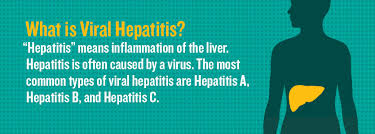
WHO’s new scorecard shows poor progress of hepatitis response in Africa

The World Health Organization (WHO) African region new scorecard shows that only three of the 47 countries are on track to eliminate, Hepatitis, that affects one in 15 people in the region, which is the first time that they examine hepatitis prevalence and response rate.
Dr Matshidiso Moeti, WHO Regional Director for Africa said the analysis is the first to track each country in the region and to assess progress towards the goal of saving the lives of more than two million Africans who may develop progressive hepatitis B or C liver disease in the next decade if countries fail to ramp up their efforts.
WHO said in a statement that the scorecard will be presented at the first African Hepatitis Summit to be be held in Kampala Uganda from 18 to 20 June, which will provide vital information about the status of the regional hepatitis response, measuring progress against the Framework for Action for the Prevention, Care and Treatment of Viral Hepatitis in the African Region (2016-2020).
“It is fitting that the first African Hepatitis Summit should be held in Uganda, the country has superb lessons to share and we support these important exchanges as they are helping to build evidence based policies and promoting partnerships for more concerted action against viral hepatitis across the region, they are showing us that beating this disease is achievable,”added Moeti.
WHO emphasised that every year more than 200,000 people in Africa are dying from complications of viral hepatitis B and C-related liver disease, including cirrhosis and liver cancer, while 60 million people in the WHO Africa Region were living with chronic hepatitis B infection in 2015.
They further stated that more than 4.8 million of them are children under five years old and further 10 million are infected with hepatitis C most likely due to unsafe injection practices within health facilities or by communities.
The analysis also show that 28 countries have developed a national hepatitis strategic plan for viral hepatitis, however, most are still in draft form with only 13 officially published and disseminated. While only 15% (7/47) countries are leading prevention efforts with national coverage of both Hepatitis B birth dose and childhood pentavalent vaccination exceeding 90% and there are major gaps in hepatitis testing and treatment with less than eight countries providing subsidized testing and treatment for viral hepatitis.














































